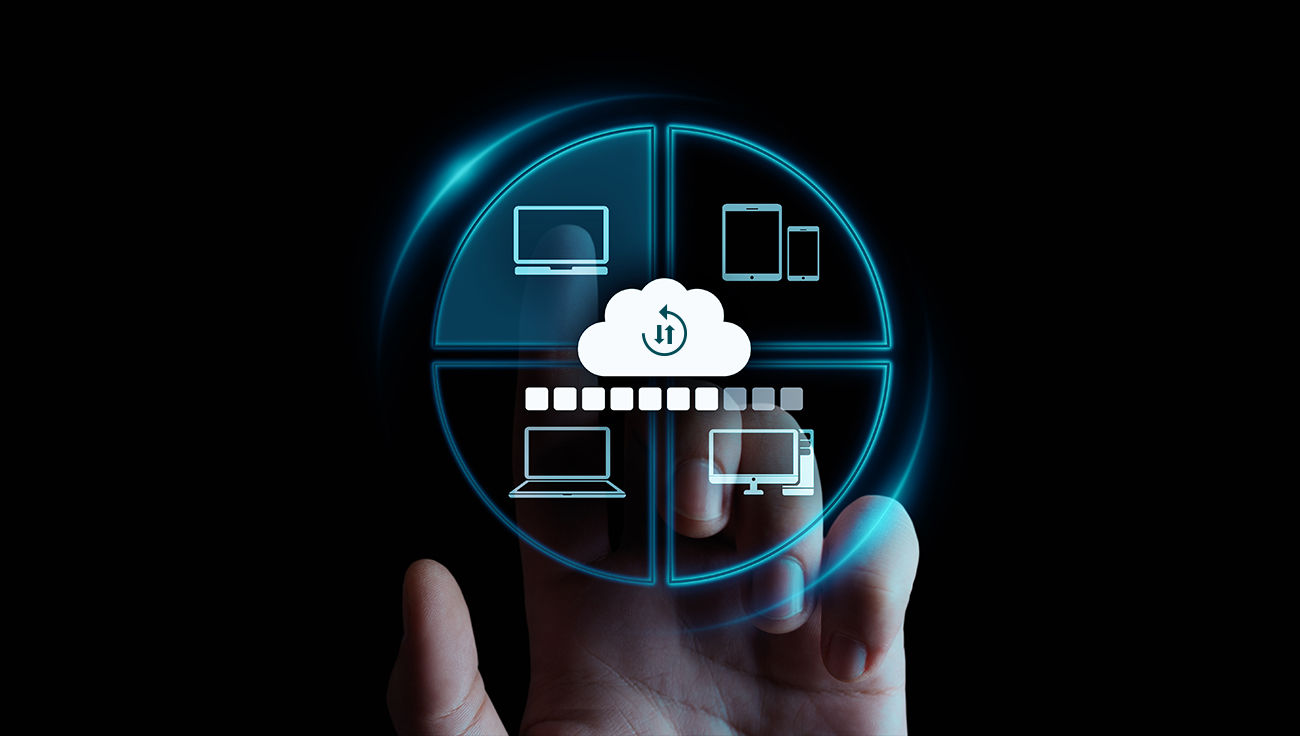Why back up data if I’ve never lost any? A question Greg Bak, product development manager at data protection, backup and disaster recovery software vendor Xopero, sometimes gets from businesses. “But the query should be put differently. Business owners should rather ask: If someone takes away my computer right now, would I be able to continue working and guarantee business continuity?” says Bak, explaining that many companies don’t realise how dependent on digital data they actually are. Here are some of the insights he’s shared that might help you recognise the importance of regular data backups.
Backups have got your data covered
When a threat actor or a natural disaster hits your business, all your data can be lost in just a few seconds, making it impossible for you to continue working – with data backups, the impact of such attacks or mishaps can be reduced. “If you invest into an effective backup and recovery solution, you can be mostly sure that, in such cases, you won’t lose any data, and will be able to restore your business operations quickly, with almost zero impact.
You should be able to instantly recover important documents, or even entire operating systems, virtual machines, and data from SaaS applications. Thinking that your working copy can serve as a backup is wrong,” Greg Bak elaborates. “Protecting data means protecting valuable intellectual property. Small businesses often rely on just a few devices loaded with crucial files which should be protected accordingly.”
One example for all"One of our customers lost his data and access to services due to a ransomware attack. The entire company would not have been able to operate at all, but thanks to our backup solution, the customer was able to run virtual machines, based on the backup, instead of physical servers, and thus operate as usual and ensure business continuity. Consequently, he was also able to restore his entire operating system, including all configuration changes he had made during the day. Thanks to that, he didn’t even have to think of paying the ransom, a choice which is non recommended,” recalls Greg. Nevertheless, it needs to be noted that backups are not the solution to ransomware attacks and can never replace thorough security software – they just make the potential attack hurt a little less. |
Backup solutions correspond with remote working models
During the pandemic, most companies switched to remote working and started to take endpoint protection and backups more seriously. “Up to that point, they thought they didn’t need to do that, since they felt that there was little to no important data on their endpoints, and that everything was stored on their servers. But once employees started working from home and using personal devices too, companies realised that those devices stored valuable data as well,” says Greg. All in all, cloud backups are also recommended for hybrid workplaces and home offices.
Microsoft 365 and the shared responsibility model for cloud computingMicrosoft is officially responsible for service availability and its efficiency, but not for data security. “It’s up to the user to keep the data safe and to protect it properly. There are some backup solutions provided by Microsoft, but users have realised that they want to have control over how backups are done, where they are stored, and how they can be restored. And that’s something only a reliable software solution allows you to do,” says Greg Bak from Xopero. |
Some data losses are rather unexpected
Ransomware attacks that encrypt or corrupt your data are just the tip of the iceberg. There are many other ways your data can get lost. For example, via employee sabotage. Imagine a soon-to-be-ex-co-worker deletes important files, essential for your business. Also, in such cases, data backups can save you the worry and retrieve all deleted documents. Natural disasters like floods or fires can cause problems too, if they shut down your office – including devices with crucial data.

There’s no such thing as restoration without backupBuying the backup and recovery product separately? Not recommended. “There are some vendors on the market that provide additional fees for data restoration, but in my view, it’s unethical, because when you’re not able to access your IT infrastructure, you shouldn’t be asked for additional payments or fees. Every second counts and you should be able to regain access to your restored data as soon as possible,” says Greg Bak. |
Frequencies and capacities matter
Now that you know how important they are, how often should backups be performed? “There is no general answer: everything depends on your needs, on how often your data changes, and how valuable it is. Some databases are updated every few seconds; others can do with lower frequency. Also, take your possibilities and capacities into account: if every 10 minutes, you produce 100 GB of data and there is no efficient internet connection, you won’t be able to send the data to the cloud. There always has to be a balance between the customer’s needs and his objective possibilities,” says Greg.
For some SMBs, the standard is to make backups at the end of the workday. “The IT admin tells his co-workers they don’t have to shut the computers down after they finish work, and that the computers will be switched off automatically once the backups are performed,” says Greg.
In case you are wondering, there are trial offers
Still not sure whether to invest in a backup and recovery solution? Reliable software vendors let you go for PoC (Proof of Concept). Thanks to that, you can test the chosen solution in your natural environment and decide later.
From proof to purchaseOne of our POC stage customers was testing our software, eager to find out whether the solution would fit his needs or not. After that, he wanted to return the hardware we had shared with him. As soon as he left the package at the post office, he was attacked by a ransomware attack. But luckily, he forgot to erase the data backups from the hardware he was sending back to us. Thanks to that, he recovered all needed documents – and became our customer,” shares Greg. |
Greg Bak, product development manager of Xopero Software
Greg has been working for Xopero for more than 10 years. “We are both producers and providers. Our management is running directly in the cloud, and we take care of the infrastructure that hosts the entire backup services. Customers are able to back up, for example, their Microsoft 365 data; there’s no need to install anything to their local environment, as all can be done in the cloud. That’s how our newest product, Xopero ONE, works too. We also offer on-premises installations, where no data is sent out of the company at all. Recently, we even started offering backup for Git repositories.”
He remembers the times when he had to convince businesses that they needed a backup, but as he says, awareness is much higher now. “Along with the awareness and business needs, grow the competition landscape. So now we don't have to educate the market anymore, but constantly stay ahead of the competition, which is a very intensive and dynamic task,” laughs Greg. “The more data that’s computed, the larger the need to back it up. That’s something businesses, including small ones, should be aware of.”




